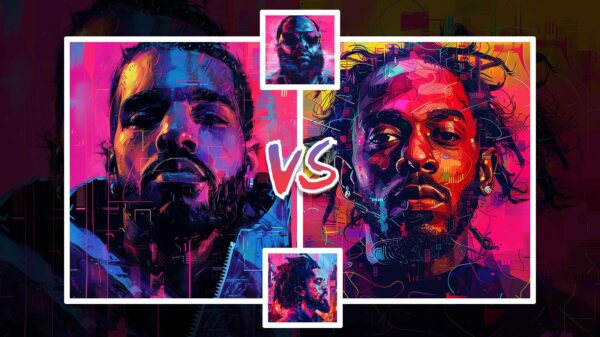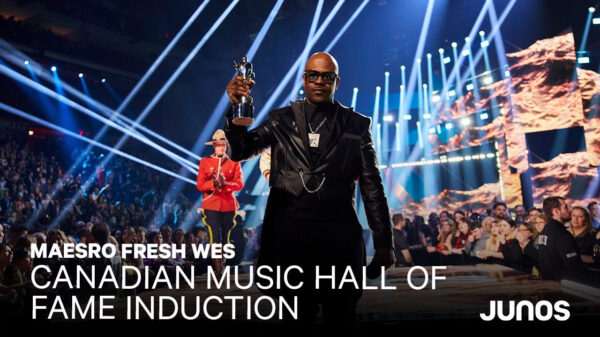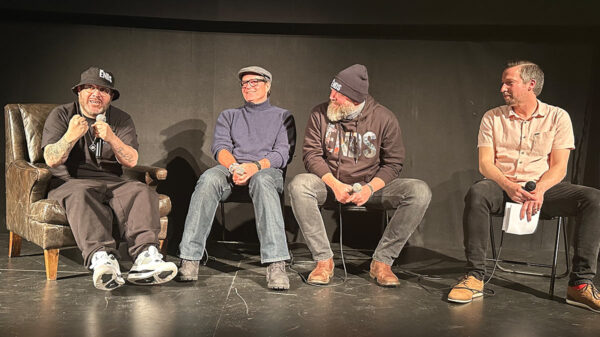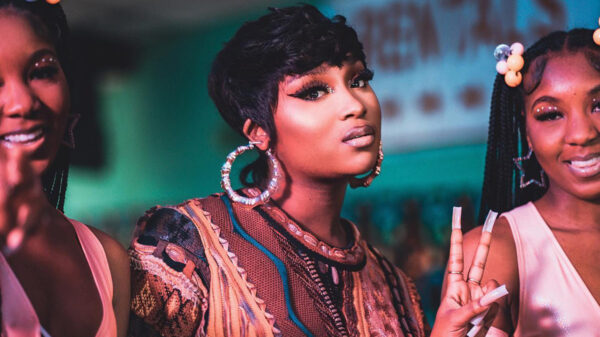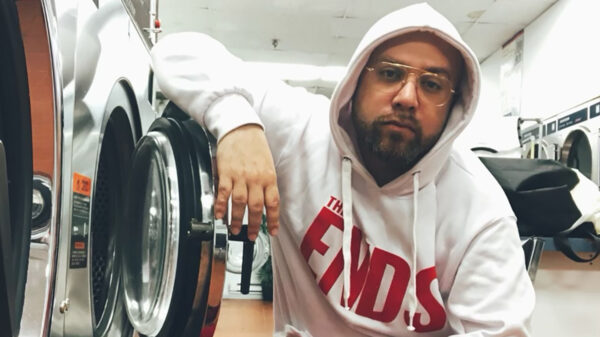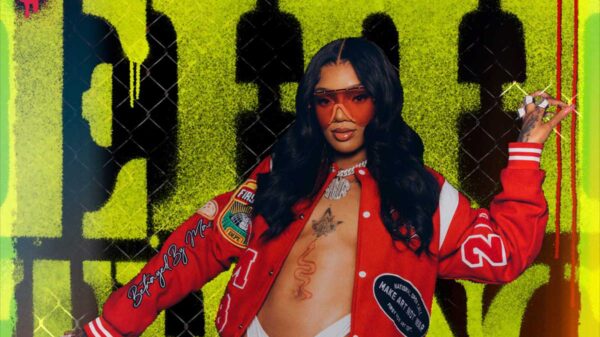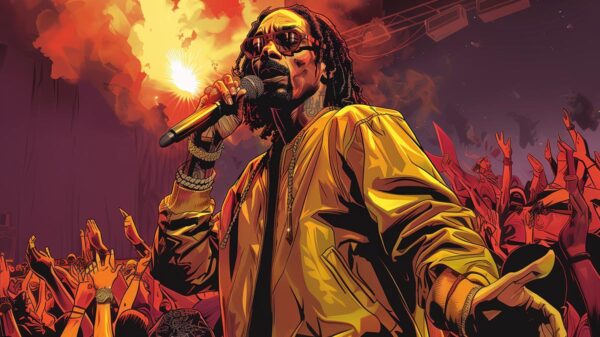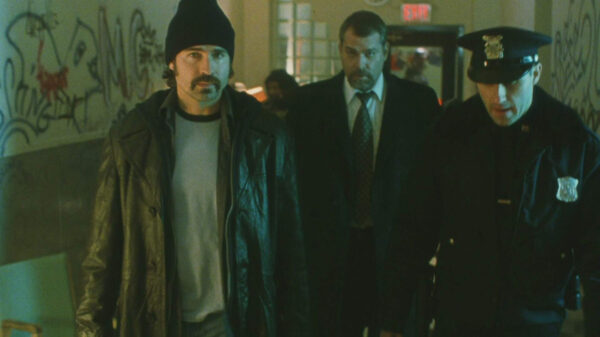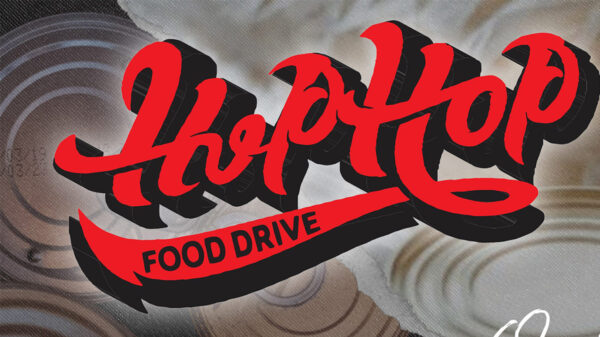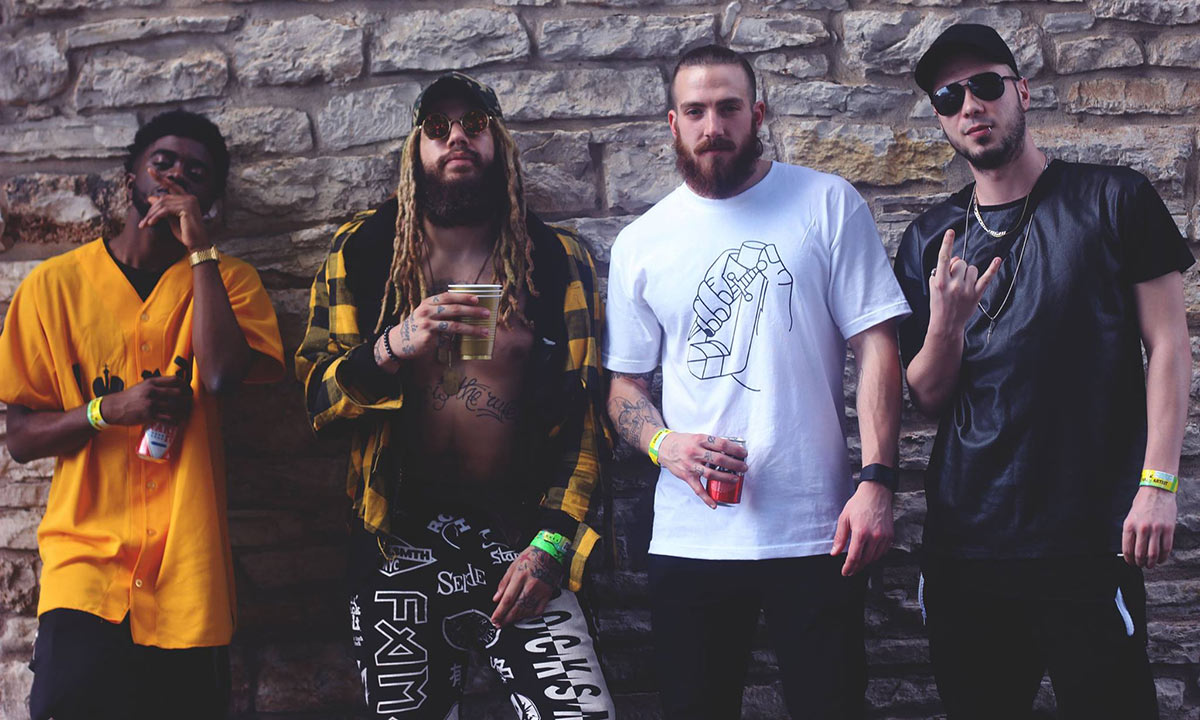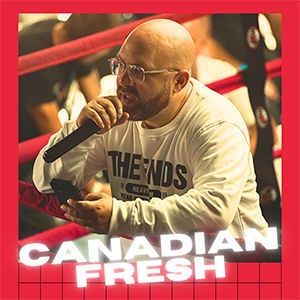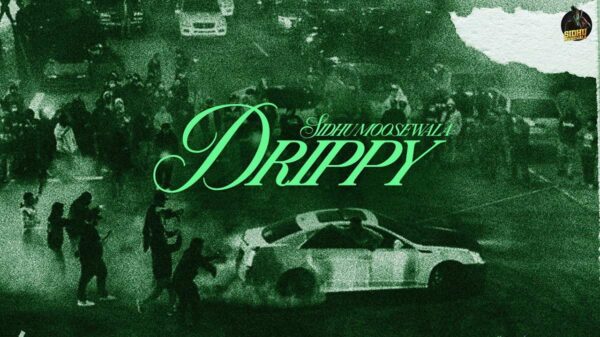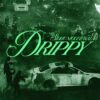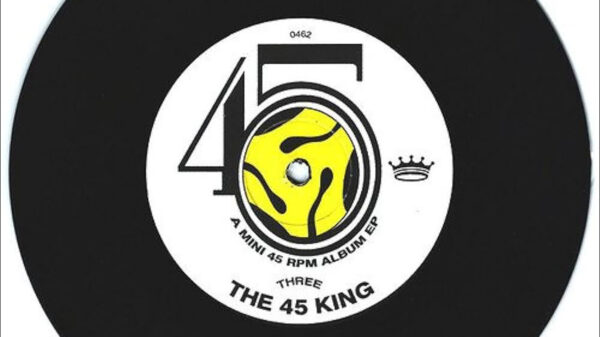Hip-hop is more than music. It’s a culture and for many, it’s a movement. Over the years, hip-hop culture has grown globally, birthing sub-cultures along its path including Toronto’s own urban scene.
Toronto’s hip-hop subculture broke ground in 1983 B.D. (as in, Before Drake) when Ron Nelson graced Canadian radio waves with
Fantastic Voyage, the first hip-hop radio program in the country.
The culture went through some notable peaks and valleys thereafter. There was a peak in 1989 when Maestro’s “Let your Backbone Slide” made it to the U.S. Billboard charts and remained the bestselling Canadian hip-hop single of all-time until 2008 A.D. (as in, After Drake).
Then, the culture experienced a dip in the mid-to-late 90s when things fell quiet for almost a decade, until it landed a turning point in 1998 with the release of “Northern Touch,” a collaborative single by the Rascalz, Checkmate, Kardinal, Thrust, and Choclair. The single kicked-off a series of notable events giving Canadian hip-hop an unprecedented level of attention from media and industry heads in the U.S.
This helped guide the Canadian music and broadcast industries to make infrastructure changes which would provide a more stable and commercially visible platform for Canadian hip-hop going into our breakthrough period, where we find ourselves today. But, it wasn’t enough.
The above paragraph is a brief and extremely high-level summary of Toronto’s urban culture to-date, but it is enough to underscore the need for us — fans, artists, industry gatekeepers — to be proactive in our approach towards growing a thriving hip-hop scene. We can’t afford another dip like the one that lasted almost a decade. Why? Because it is a major driving artistic force for our city (and dare I say our country) and though some may disagree, it is also a driving economic force.
Connect the Dot: SWOT Analysis
So, what should be our approach? That’s a loaded question, but some of the cultural objectives we should consider working towards include: fostering an atmosphere of creativity and at-home support, giving the community a vested interest in its growth, and creating a legacy.
I sat down with three industry experts to help me understand the culture’s strengths, weaknesses, opportunities, and threats (yeah, I ran a SWOT) in hopes of gaining some clarity on what our next best steps should be in order to move towards these objectives. What they had to share was inspiring, enlightening, and motivating.
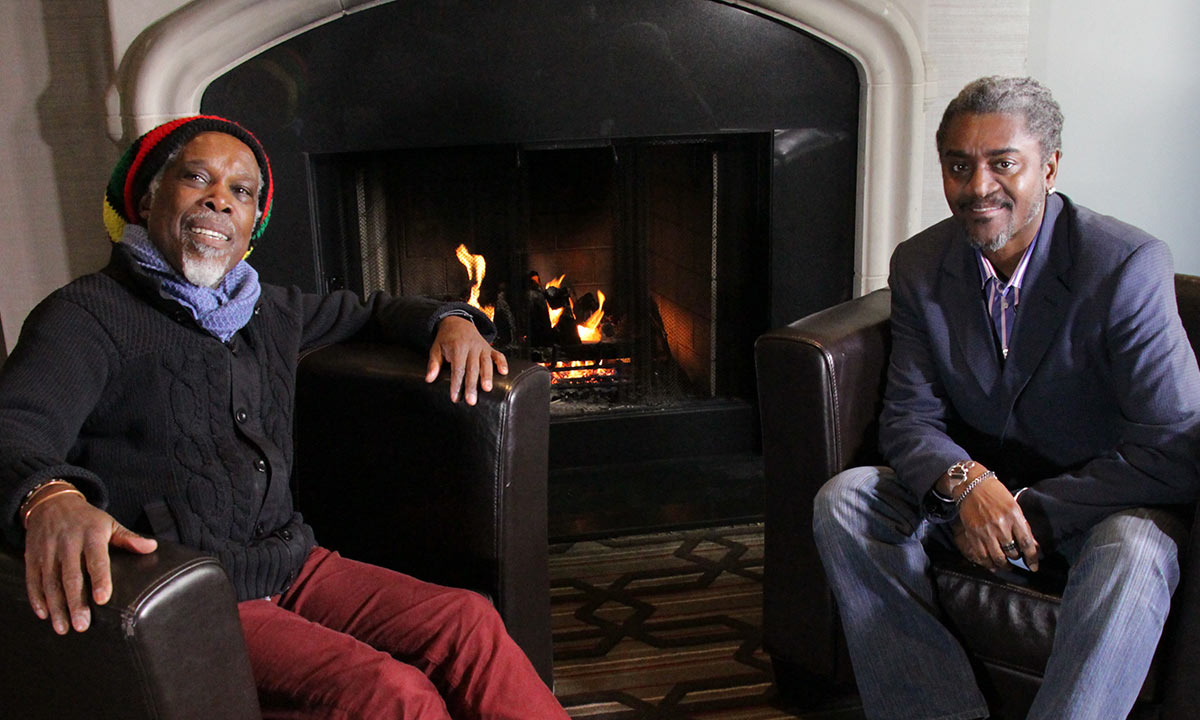
Master T (right) sits with music legend Billy Ocean for FEVA TV
Strengths with Master T, Director of Media Productions at RX Music and former host of MuchMusic’s RapCity
Many will agree that Master T played a pivotal role in helping grow Toronto’s urban culture. As the host of MuchMusic’s RapCity from 1990 to 2001, he devoted a decade of his career to being and giving the city a voice and a platform to share its work. Our culture’s strength according to Master T? The rise of technology: how it has driven connected-ness in the urban scene in Toronto and how it has enabled and empowered the city’s artists to create and share. This strength is not unique to the city or the country… or the scene, but it is absolutely one that should be underscored so we can maximize on it.
“We have a real opportunity right now,” said Master T during a phone interview in Toronto. “Today, artists can roll out of bed and shoot a video on their phone for a song they produced in their basement and distribute it on major platforms. Back in the day, creating content in the first place was a barrier now, there are virtually none.”
Master T recalls days in the 90s when artists would send him music (on cassette tapes and CDs) in hopes of being featured on his show on MuchMusic, RapCity. His hands were tied by many ropes, one of which was the need for strong visuals in order to get the song played on television. Before the arrival of today’s technology and social media tools, artists were forced to rally affordable resources to get their music made, period, let alone produce photos and video assets for it.
“We are much more community-minded now and that’s a real strength,” Master T explained. “Toronto had a sort of ‘crab in the bucket’ mentality back then, but of course we did. Resources were scarce. When an artist found a good engineer, a dope beat maker, and a studio where they could record and create on a homie tip those resources were not shared because they were scarce.”
Weaknesses with Gabrielle Rubaine, Project Coordinator at FACTOR Canada and Marketing Director with #BigTicket
“Knowledge is power.”
“When you know better you do better.”

Gabrielle Rubaine
These aren’t just Instagrammable quotes, they provide witty commentary to the need for education and mentorship in Toronto’s urban arts community in order to move the needle.
“The urban community overall isn’t well-versed in the game,” said Gabrielle Rubaine, Project Coordinator at FACTOR Canada and Marketing Director with #BigTicket. “I don’t think [Toronto’s urban] artists have a good understanding of the Canadian music infrastructure and don’t have people looking to teach and guide them. The indie scene in Canada knows how to get access to funding, which doors to knock on, how the industry works. The urban scene doesn’t – yet.”
Rubaine believes that by arming artist with knowledge about the industry and not just the tools, the culture as a whole will begin to move forward more quickly.
“We have artists, influencers, and gatekeepers who have played the game and are still in it,” Rubaine went on. “Our culture’s ‘elders’ have a responsibility to mentor the generation coming up, otherwise, we’ll have a pool of talent with amazing ideas and pieces of work that won’t get seen or heard by the right people because they didn’t know to apply for a grant, didn’t know who to send their work to, didn’t know any better.”
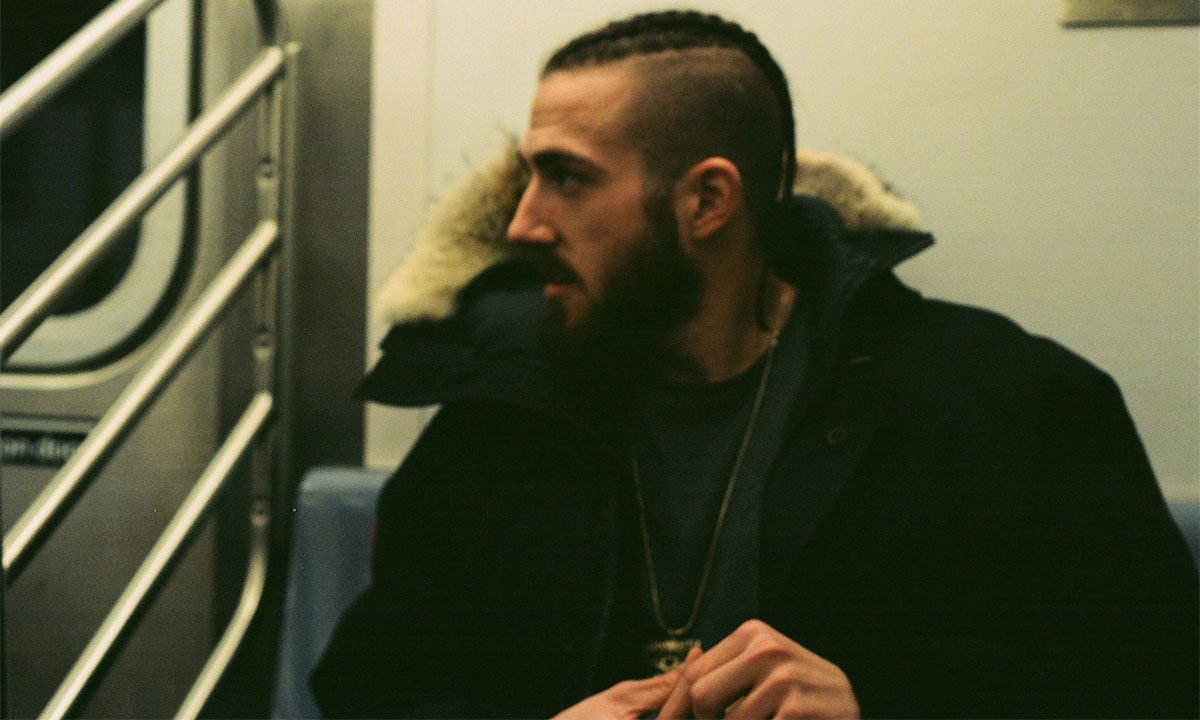
Brenden Hewko, CEO of SmashMouth Entertainment
Opportunities with Brenden Hewko, CEO of SmashMouth Entertainment
When Brenden Hewko, CEO of SmashMouth Entertainment, kicked off his career in the music industry, he promised himself that no matter where his journey took him he would always create and look for ways to give back to the community that inspired his career decision in the first place.
Recently, Brenden and his team at SmashMouth Entertainment stomped a footprint for Toronto (actually, Canada) at one of North America’s biggest music festivals. On March 17, 2018, SmashMouth and 2010 Management hosted 6XSW, shining a spotlight on some of Toronto’s biggest, and soon-to-be biggest, musical exports: Murda Beatz, Killy, Big Lean, CMDWN, Sean Leon, DillanPonders, Friyie, Devontee, Savannah RE, Nue, Yung Tory, Faiza, and Jimmy Brickz.
“The industry is watching the city,” Hewko said over a coffee chat in Toronto’s Distillery District. “That’s our opportunity as a whole. The real opportunity lays with everyone in the community, including myself. Individually, we have the chance to choose to connect with one another – on resources, ideas, performances, shows, you name it. Collectively, if we choose to seize this chance the big opportunity for Toronto – actually Canada – is to create a community where homegrown talent can actually grow at home and then reach international audiences.”
Essentially, the opportunity is the ability to create our own. And, with the daunting objective of moving Toronto’s urban culture forward, creation of these opportunities will take the collaboration of more than just a handful members of the community.
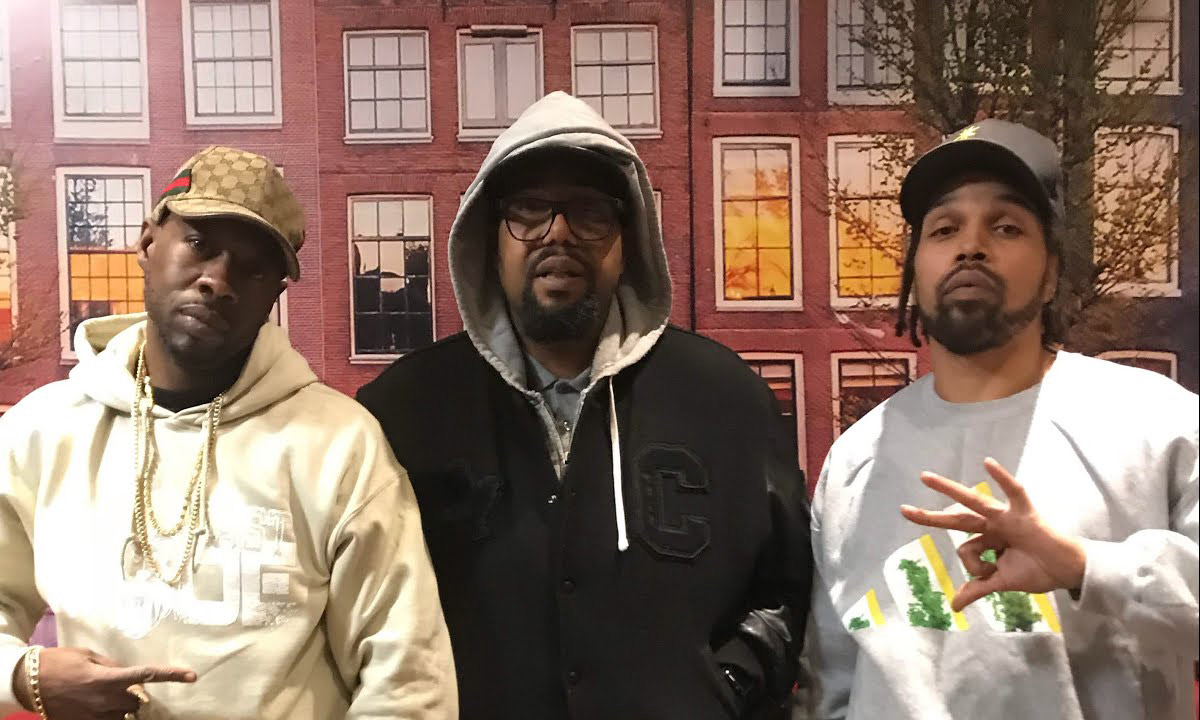
Craig Mannix aka Big C (centre), with the co-hosts of We Love Hip Hop, Friday Ricky Dred & PK Herc
Threats with Craig Mannix, Manager of A&R at Sony Music Entertainment Canada
You can’t lead or teach what you don’t know. You can’t inspire what you don’t believe in. During a phone interview with Craig Mannix (aka Big C), Manager of A&R at Sony Music Entertainment Canada, he commented on the lack of representation the culture has at decision making tables and within influential governing bodies.
“You cannot support a culture you do not understand,” said Mannix. “We have decision makers in the industry who lack knowledge and experience in the urban music scene making choices that affect, and even stunt, the culture’s growth. If we are really going to change things, this is one of the places we need to start.”
(I think) Craig is right. No culture can thrive if its leaders aren’t sitting in places of power or hold positions that allow them to vocalize the culture’s needs and wants.
“Hip-hop isn’t like pop or indie,” Mannix explained. “It’s a whole culture that is more than music, that has roots that good deep. To move hip-hop in Toronto [and even in Canada] forward, we need people who understand it and its audiences to not just have a voice but to be the voice that other stakeholders will listen to.”
During our interview, Craig also mentioned that a threat to Toronto’s hip-hop culture (and ultimately Canada’s) is our talent being snatched-up by labels and representation from the U.S. and Europe.
“We aren’t growing or supporting our own urban music talent sufficiently,” said Mannix. “Labels from the U.S., the U.K., and Germany are scouting our talent and taking them out of the country to develop them. If we don’t act, our artists will be Toronto-born and foreign-grown. That’s a threat to our culture.”
—
Written by Maricel Joy Dicion for HipHopCanada






